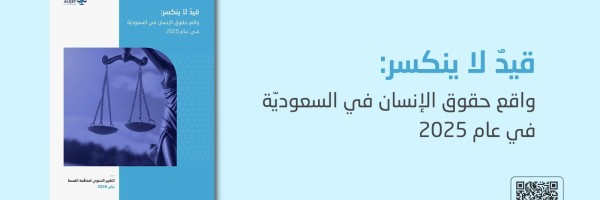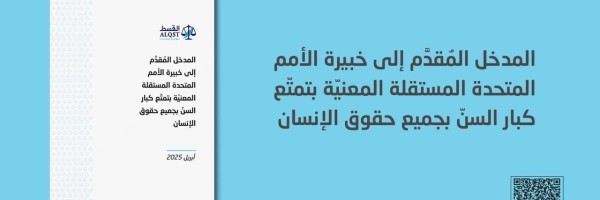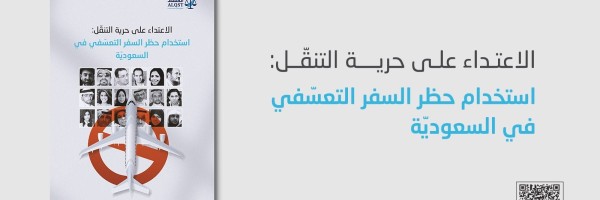"The Saudi Human Rights Commission: 20 years of whitewashing the Kingdom’s human rights record", drafted by MENA Rights Group with the inputs of ALQST for Human Rights and the European Saudi Organisation for Human Rights, aims to complement a 2023 report by presenting new, publicly available, evidence that demonstrate the continuing role of this institution in covering up human rights violations, 20 years on from its establishment.
Introduction
In recent years, the government of the Kingdom of Saudi Arabia has consistently upheld a progressive stance on the advancement of human rights in the country. Through its Saudi Human Rights Commission (SHRC), it regularly emphasises reforms undertaken to protect and promote human rights. While the Kingdom has indeed sought to bring changes to important laws governing women’s rights and to release some long held political prisoners, international organisations and civil society organisations have witnessed a different reality.
On the contrary to the government’s narrative, human rights organisations have documented a continued crackdown on Saudi women calling for institutional reforms and basic rights; an all-time rise in executions of individuals held for minor drug-related offences or for exercising their right to freedom of expression; and dire conditions of detention, including the practice of torture.
The SHRC was established exactly 20 years ago, through Resolution No. 207 of 12 September 2005. Since its establishment, the SHRC has played a crucial role in upholding a distorted narrative about the current human rights situation in the Kingdom. The SHRC refers to itself as an independent organisation with full autonomy that reports to the king and holds the government to account. On paper, the SHRC has been mandated with promoting and protecting human rights and is tasked with various responsibilities which include addressing human rights complaints, engaging in legislative work, and monitoring detention facilities.
National Human Rights Institutions (NHRIs) are generally encouraged to seek accreditation from the Global Alliance of National Human Rights Institutions (GANHRI), a body that assesses the effectiveness and independence of NHRIs according to international standards adopted by the UN General Assembly, commonly referred to as the Paris Principles. However, the SHRC has never sought accreditation from the GANHRI and it is therefore not subject to any international oversight.
In 2023, MENA Rights Group, ALQST for Human Rights and the European Saudi Organisation for Human Rights (ESOHR) published a joint report (2023 SHRC Report) analysing the effectiveness of this institution and highlighting its role in whitewashing human rights violations in the country. Through a comprehensive analysis of its legal framework, composition, partnerships and actions, it found documented evidence of the institution’s alignment with government’s interests and its use as a mere tool to whitewash Saudi Arabia’s human rights record.
This report aims complement the 2023 SHRC Report by presenting new, publicly available, evidence that demonstrate the continuing role of this institution in covering up human rights violations and to present itself as a spokesperson of the government of Saudi Arabia regarding human rights issues. To this day, no reform was undertaken to improve its independence and its effectiveness. Instead, the institution has focused its efforts on downplaying human rights violations, dismissing cases, and engaging with government and the United Nations (UN) in ways that primarily serve to enhance the government’s image.




